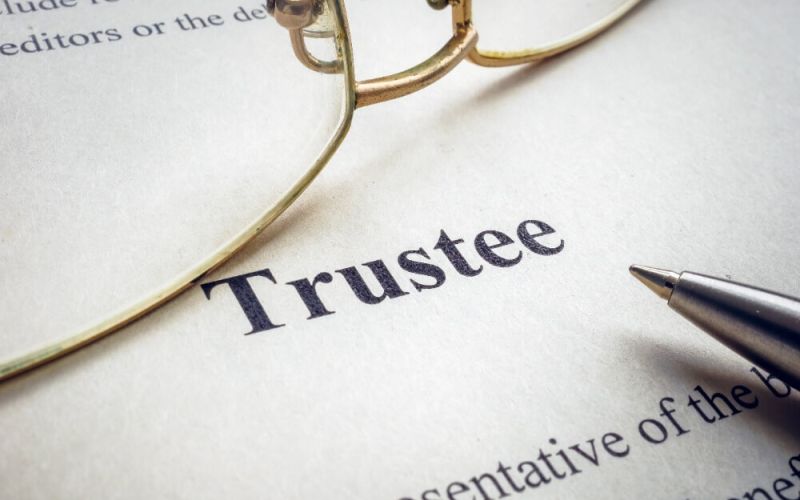Adult Guardianships and Conservatorships in Virginia


When people hear the word “guardian,” they often think of an adult authorized to make decisions on behalf of a child. It is important to know, however, that guardianships are not limited to children. In fact, Virginia courts appoint guardians and conservators for incapacitated adults in a variety of circumstances. This first in a series of blog posts discussing adult guardianships and conservatorships in Virginia will provide a brief introduction to the process of becoming a guardian or conservator of an incapacitated adult.
What is a Guardian and Conservator?
A guardian or conservator is appointed when a court determines that an incapacitated adult is unable to manage his or her own personal or financial affairs.
A “guardian” is responsible for the personal affairs of an incapacitated person, including responsibility for making decisions regarding the person’s support, care, health, safety, habilitation, education, and in many cases, their residence.
A “conservator” is a person appointed by the court who is responsible for managing the estate and financial affairs of an incapacitated person.
In Virginia, an “incapacitated person” means an adult who has been found by the court to be incapable of receiving and evaluating information effectively or responding to people, events, or environments to such an extent that the individual lacks the capacity to (i) meet the essential requirements for his health, care, safety, or therapeutic needs without the assistance or protection of a guardian or (ii) manage property or financial affairs or provide for his support or for the support of his legal dependents without the assistance or protection of a conservator.
How Do You Establish a Guardian or Conservator?
A person seeking to become a guardian or conservator for an incapacitated adult must file a petition with the Circuit Court and must meet a number of statutory notice and pleading requirements as set forth in the Code of Virginia. For purposes of the petition, the incapacitated adult is referred to as the respondent. Any person may file a petition for the appointment of a guardian, conservator, or both, and the person filing a petition (referred to as the petitioner) does not necessarily have to be the person who will be appointed guardian or conservator for the respondent.
Once a petition is filed, the court will appoint a Guardian ad litem, who is an attorney at law, licensed to practice law in Virginia, and is appointed by the Circuit Court to represent the interests of the incapacitated person during the guardianship and/or conservatorship proceeding. The Guardian ad litem has several duties, including meeting with and evaluating the condition of the respondent, and providing a detailed report and recommendation to the court.
What is the Purpose of Guardianship or Conservatorship?
The purpose of a guardianship/conservatorship proceeding is to ensure that the best interests of the incapacitated person are represented and safeguarded. To grant a guardianship and/or conservatorship, the petitioner must prove, and the court must determine, that the respondent is legally incapacitated, and that the proposed guardian or conservator is the appropriate and qualified choice under the law. This will require the petitioner to appear at a hearing and present evidence. It is important to note that the respondent is entitled to counsel and may object to the appointment of a guardian or conservator and request that the case be tried by a jury. Similarly, a third party may object and contest the petition. If the matter is contested, petitioners can find themselves in the midst of protracted litigation, where the final hearing resembles a full trial at which evidence is presented, testimony is heard, and witnesses are cross-examined.
No matter who a Petitioner requests, it is necessary to consider the incapacitated person’s best interests when seeking appointment of a particular guardian or conservator. In each case, the Court appointed Guardian ad litem will investigate the Petitioner’s proposed choice of guardian/conservator and will provide a report to the Court which will analyze, among other things, the propriety and suitability of the person requested in the petition. The Guardian ad litem, and ultimately the Court, will consider the following factors in determining the appropriateness of a proposed guardian/conservator:
- The person’s geographic location
- Any familial or other relationship with the incapacitated person
- The person’s ability to carry out the powers and duties of guardian and conservator
- The person’s commitment to promoting the incapacitated person’s welfare
- Any potential conflicts of interest
- The wishes of the incapacitated person and any recommendations of relatives
Do I Need an Attorney to Establish Guardianship or Conservatorship?
Becoming someone’s guardian or conservator is a great responsibility, and can be an arduous and emotionally difficult process. Before you petition a court to take on this important role, you should consult with a litigation attorney experienced in guardianships and conservatorships who can ensure you meet your statutory responsibilities and will competently guide you through the trial process.

Written By Vanessa Macias Stillman
Vanessa Macias Stillman is an Associate at Midgett Preti Olansen concentrating in the area of estate and fiduciary litigation. Ms. Stillman has experience litigating in several areas of civil law, including contested guardianship and conservatorship actions, will contests, partitions of property, suits for breach of fiduciary duty, and a variety of complex trust and estate matters.
Latest Resource Articles
-

What is the Difference Between Trustee, Executor, and Pow…
Written by Nathan R. Olansen on January 10, 2024.Key Takeaways: The overarching goal of any trustee, executor, or power of attorney is to wo…Read more -

Reasons Why You Should Hire a Professional Executor
Written by Nathan R. Olansen on December 21, 2023.Key takeaways: A fiduciary is a person or entity appointed to handle financial and legal ma…Read more -

Why Set Up a Trust for Your Grandchildren?
Written by Alison R. Zizzo on December 11, 2023.Creating a trust for a grandchild requires not only an understanding of one’s financial goal…Read more -

Understanding The Benefits of a Bloodline Trust
Written by Alison R. Zizzo on November 10, 2023.Key Takeaways A bloodline trust is an estate planning tool designed to protect assets for d…Read more -

Are Powers of Attorney Responsible for Medical Bills?
Written by Nathan R. Olansen on September 22, 2023.According to a Genworth’s 2021 Cost of Care Survey, the reported average cost of assisted li…Read more -

Top Reasons for Disputing a Trust in Virginia
Written by Nathan R. Olansen on September 1, 2023.A trust is a valuable tool for saving your loved ones from the probate process and reducing …Read more -

Are You Responsible for Your Deceased Spouse’s Medical Bi…
Written by Ann H. Larkin on August 29, 2023.After the death of a spouse, the surviving spouse will inevitably receive bills from hospita…Read more -

Know the Signs of an Employee Retention Credit Scam
Written by Nathan R. Olansen on August 2, 2023.If it sounds too good to be true, it probably is. The IRS has sounded the alarm repeatedly r…Read more -

Can a Trustee Sue a Beneficiary?
Written by Nathan R. Olansen on August 1, 2023.When you are named the trustee of a trust, it comes with responsibilities you need to be pre…Read more
"*" indicates required fields

© 2024 Midgett Preti Olansen





